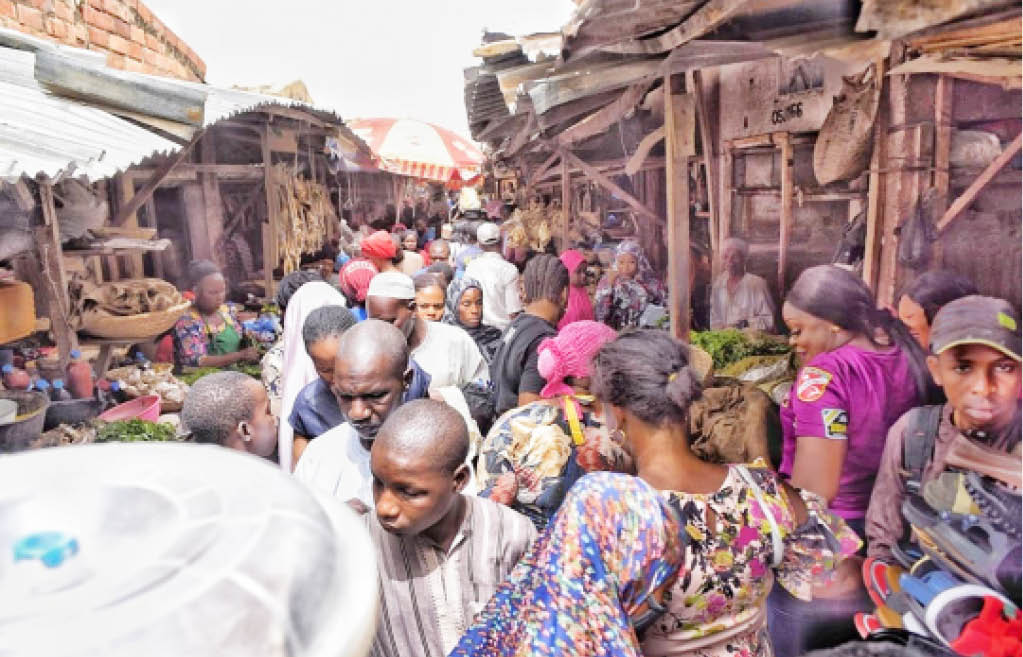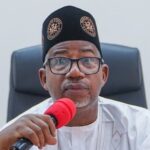The economy and the people are intricately intertwined. The quality of one affects and is in turn affected by the other. People build the economy, which is built for the benefit of the people. The people who build the economy are at the same time the objects of every economic policy, action, decision, taken by them.
The primacy of man in the dynamics of economic management and progress came to the fore on Monday, October 25, at the 27th Nigerian Economic Summit. The Chairman of the NESG, Mr Asue Ighodalo, in his opening remarks, highlighted the power of the people and the capability of the government when stakeholders partner effectively to lead initiatives.
- NIGERIA DAILY: All you need to know about the eNaira.
- Anambra election: Police mobilise heavily to crush IPOB’s threat
He noted, for instance, that the world was surprised at the way the government managed the COVID-19 pandemic, and the impressive progress of Nigerian youths in leveraging technology to change the world, with three of Africa’s recent Unicorns originating from Nigeria.
This point is often missing in discussions about the performance or state of an economy, especially in the context of a poor nation such as ours, Nigeria. Sometimes talks about the economy seem so unrealistic because they fail to link the state of an economy with the quality of the builders of that economy.
The economy we have today in Nigeria is simply the result of the cumulative economic decisions and actions that we as Nigerians have taken over time. It could not have been different with the same persons in charge, with the mindset of the people and with the same skills set, and attitude to work of the people.
Conversely, it could have been different if Nigerians had been different from who we have been, from the leadership to the followership. When man was a hunter, he built and operated the economy of hunters whose daily routine was to comb the bush with his crude instruments. The efficiency of his arsenal of weapons, his marksmanship and dexterity in weapons use determined the kind of game he could kill and bring him, and therefore the value he brought to his family and the community. The hunter could not build or operate an industrial economy.
People’s productivity is what creates an economy. Therefore, the people are the biggest asset a country can have. Productivity here refers to the ability of a worker, using his set of skills, to transform a resource or a combination of resources into goods and services within a given time frame. According to the National Bureau of Statistics, “labour productivity refers to the quantity of labour input required to produce a unit of output. This is often the case, even though it is recognised that labour is NOT the only input utilised in the production process,” it said in a 2015 report.
It will be pertinent to ask how much a given worker in Nigeria, in whatever field, produces compared with his counterpart, say in Ghana, South Africa, the UK, USA, etc.
In a 2015 report, the NBS presented Nigeria’s labour productivity per hour/annum for the four years 2011, 2012, 2013 and 2014 as follows: N471.94; N551.70; N594.83, and 639.34, respectively. It gave the dollar equivalents of those naira amounts then as $2.98; $3.51; $3.78, and $3.77. For the year 2015, NBS said the productivity rate was as follows: in Q1, it was N669.57 ($3.50), and in Q2, N730.85 ($3.71).
In that same 2015, a report by Time Magazine presented some of the countries with the highest labour productivity rates per hour as follows, in their order: Luxembourg, $93.4; Ireland, $87.3; Norway, $81.3; Belgium, $69.7, and the USA $6.3.
In seeking to make people productive, there are hard choices that must be made. This is more important in today’s knowledge economy, where value addition has a great influence on productivity rates, not just about getting people to school. What is the use of churning out graduates, many of whose productivity is below that of high school graduates in other climes? It is about the quality.
In fact, at this stage of Nigeria’s economy, it is perhaps more important to focus on substance than the form of education. Many graduates of technical colleges and polytechnics may be more productive than many university graduates because their training is hands-on.
It is all about the output, so there is no point wasting resources in trying to get every citizen to the university level, which is becoming an absolute waste. Many artisans in Nigeria are far more productive in their trades than many graduates, so why not formalise and empower the informal sector?
Why should Nigeria have to bring in foreigners for welding jobs in the oil and gas sector, many of whom do not have college degrees? The simple answer is that we don’t have qualified welders for such projects. Why do we have to depend on tilers from Togo and Benin Republic? That’s simply because we no longer have enough of these artisans who are qualified to do the job. The truth here is that this economy has the power of greatness but the willingness to achieve this is generally lacking. Where is the super electrician or painter? Where is the super artisan who knows his job so well that men will line up to find a place in his job order book?
A small low-income country like Cuba trains and exports doctors to different countries of the world. Let’s ask here: where are those that the Federal Government regularly sponsors abroad for Masters and PhDs? What has been their impact?
Perhaps the starting point is to ask how they were selected in the first place. Perhaps it was mere political slots given. What were the conditions of the scholarships? Were they the best brains with passion for what they went abroad to study, and are they making any impact, or it’s just another leakage where scarce resources are just thrown away?
Nigeria obviously needs a coordinated approach to its programmes to minimise the apparent wastage currently disturbing the peace of those who want to be productive, for instance, the farmer who cannot go to farm because of bandits. There are others who because of other menaces have been denied their rights of being productive.
In the cities as well, too many hoodlums are disturbing productive activities. When will the government wake up to checkmate the trend, or are we waiting for such a time when these growing cartels become another big monster that we have to spend the best part of our budget on?

 Join Daily Trust WhatsApp Community For Quick Access To News and Happenings Around You.
Join Daily Trust WhatsApp Community For Quick Access To News and Happenings Around You.


